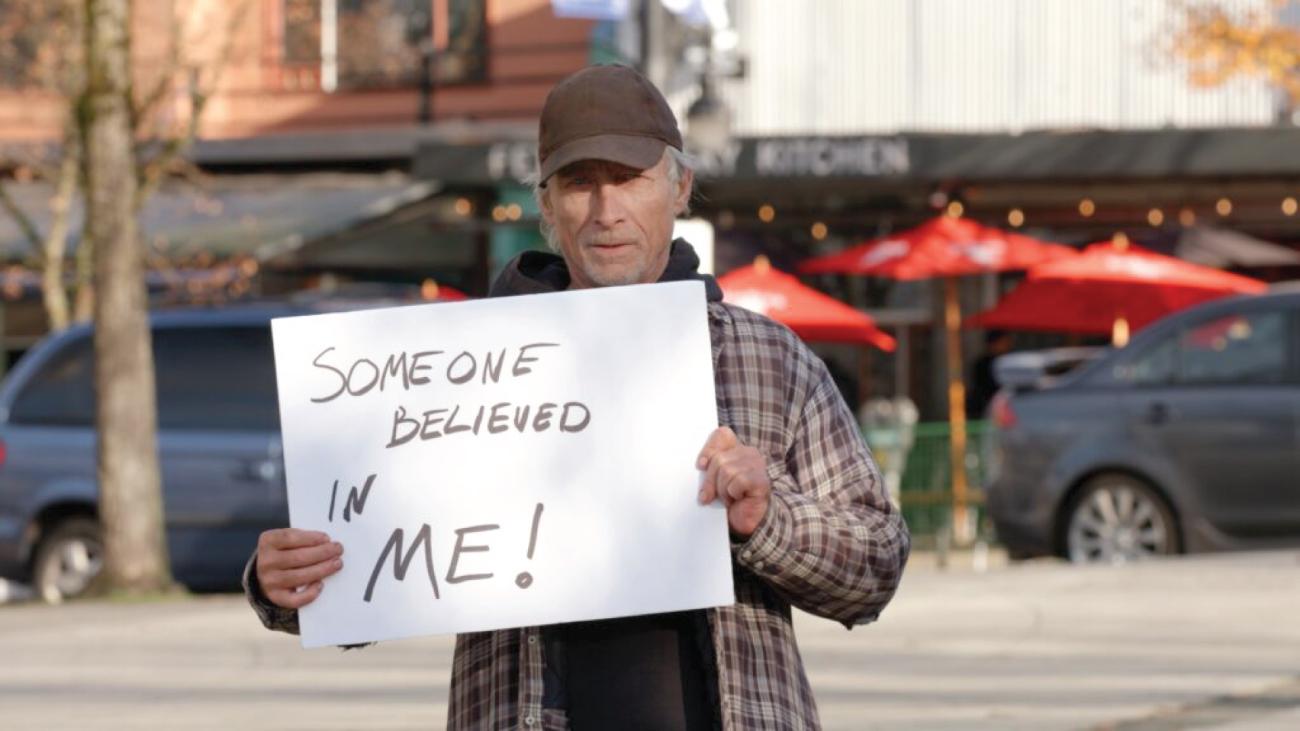Societal stressors have triggered a mental health crisis! Incapacity to cope with the stressors of everyday life , is the root cause of homelessness and substance abuse addiction
The pandemic -induced " great resignation" ( the " great resigntion" was an act of. rebellion/resistance against the greed-fueled (profit-driven) basis of our market society) . did not abate with the end of the pandemic, but rather became amplified with inflation and the "cost-of,,-living crisis". The pandemic compelled a reassessment of personal values and goals. People with meaningless jobs chose to get off the treadmill and opted to drop out of the " rat race".
Overall inflation has increased the cost of food and shelter ,and made the cost of living unaffordable...many people are feeling disillusioned,alienated, excluded ,and defeated...and nihilistic! What is one to do if one can't afford the cost of living? You do what you have to, to provide for yourself ---to survive.
Increasing homelesness, increased drug addiction, increased crime,and increased food bank use are -symptomatic of a systemic breakdown in society. Shopliftiing, looting , violence,vandalism -- these are the first signs of a breakdown in the social order.
Too wide an income disparity between the rich and the poor destabilizes the social. order. It is the responsibility of the govt. to reestablish balance through legislation.
We have enough wealth....;., its just not being fairly distributed.
The challenge is not increasing economic growth, but one of distribution-- of redistributing the abundance acrued by the economy more equitably .(univerval basic minimum income) reinvesting in /re-enforcing the social safety net.
Instead of addressing the root cause of the alienation, (poverty,(denial of access to resources),society chooses the punitive option(ostracism/incarceration)Criminallization of poverty
You can provide a person with the resources to flourish and live with dignity (guaranteed basic income),, or you can cage them at the cost of $115,000./person/year
See "Mincome" --- "the town with no poverty , : www.utpjournals.press/doi/full/10.3138/cpp.37.3.283
We already have. the data that shows that a basic income ,(mincome) improves outcomes.((mental and physical health improved and crime went down)
Oppression,injustice,disenfranchisement is achieved through the legal /court system. The legal institution is designed to maintaining the hierarchy, to favour the interests of the elite by criminalizing the impoverished.
Impoverished persons cannot pursue/access justice through the courts
When people realize the system is rigged, they opt out of it (,refuse to comply with the rules of the system) ,and resort to other options for settling their grievances such as illegal,antisocial behavior and the use of force .The social contract is no longer binding. .They are no longer a stakeholder. The destitute/excluded do what they have to to provide for themself ---to access the basic resources they need to survive.
When people are denied access to education,employment opportunities, housing, food, basic income ...they become nihilistic. Denied a share in any of it...they just want to burn it all down!
Failure to respect and comply with the law undermines the social order.
Thus poverty results in a destabilization and breakdown of the social order.
The restoration of social order is contingent upon the restoration of equity and justice!
If the GDP is growing , why then is poverty not diminishing?.! Who is benefiting from the growth in the GDP?
Clearly The wealth generated by the economy is not trickling down to the poorest. in society
Increasing the size of the economic pie does not increase prosperity for all!!
Where then is the fairness in the current distribution of the benefits of the economy?
People cannot afford shelter and basic survival resources.This is causing homelessness and a mental health crisis
The existing social safety net is not enough!
Society has a moral obligation to provide for the poor/destitute so. they can live a secure and dignified life..
Camping is a way of getting away from things...and especially now we have a lot to get away friom.
Camping becomes a permanent lifestyle. Homeless encampments become a universal phenomenon.Excluded people (those excluded from mainstream society )find a sense of community/belonging in these encampments. But these campsites are full of. pain and despair! ....for these are the common experiences thst. have brought their occupants together.. They are invariably restricted to the outskirts of cities where they are less visible (out of sight,out of mind --like leper colonies) ,and do not inconvenience businesses and middle-class neighbourhoods.
*
**********""""""
UBC study busts biases against homeless people’s spending habits
The public has the wrong idea about what homeless people would do after coming into a large amount of money.
A newly published University of British Columbia study in Proceedings of the National Academy of Sciences unveils this stark contrast between public perception and reality when it comes to how homeless people manage their finances.
Participants in a US survey of more than 1,100 people predicted that recipients of an unconditional $7,500 cash transfer would spend 81 per cent more on “temptation goods” such as alcohol, drugs, and tobacco if they were homeless than if they were not.
The UBC research team, in partnership with Vancouver's Foundations for Social Change, actually gave this amount of money to 50 people who were homeless in Vancouver, then compared their spending and outcomes over the following year with a control group of 65 homeless people who did not receive any cash.
Cash recipients spent 99 fewer days homeless, increased their savings, and saved society an average of $777 each by spending less time in shelters. They did not spend more money on temptation goods than the control group did.
The cash transfer worked, but public biases persist.
“The impact of these biases is detrimental,” said Dr. Jiaying Zhao (she/her), an associate professor of psychology at UBC who led the study. “When people received the cash transfer, they actually spent it on things that you or I would spend it on — housing, clothing, food, transit — and not on drugs and alcohol.”
The study did not include participants with severe levels of substance use, alcohol use or mental health symptoms, but Dr. Zhao pointed out that most homeless people do not fit these common stereotypes. Rather, they are largely invisible. They sleep in cars or on friends’ couches, and do not abuse substances or alcohol.
The researchers also tried to determine how public perception about cash transfers to homeless people could be changed. They found that the most effective messaging would counter stereotypes by explaining how homeless people actually spend money, or emphasize the utility of cash transfers and the net savings they bring to society.
Canadian lawmakers are considering a bill that would create a national framework for a guaranteed basic income to cover essential living expenses for people in Canada over age 17, including temporary workers, permanent residents, and refugee claimants.
Supporters of basic income policies argue that cash transfers help reduce poverty and give people more financial stability during tough times, but critics say they’re too expensive, and the money could be misused or discourage people from working.
“We know that people tend to dehumanize those experiencing homelessness. What’s surprising to me was how large this bias was,” Dr. Zhao said. “Homelessness is such a big problem in North America right now. It’s extremely costly in terms of GDP as well as human lives, and the current approaches to homelessness reduction are not working. That’s why I think it’s important to explore a different approach.”
Dr. Zhao’s Behavioral Sustainability Lab will now turn its attention to replicating this study with a much larger sample of people, and expanding it to other cities in Canada and the U.S.




















